Discovery of Sacred Inca Stones Linking The Heavens With Earth
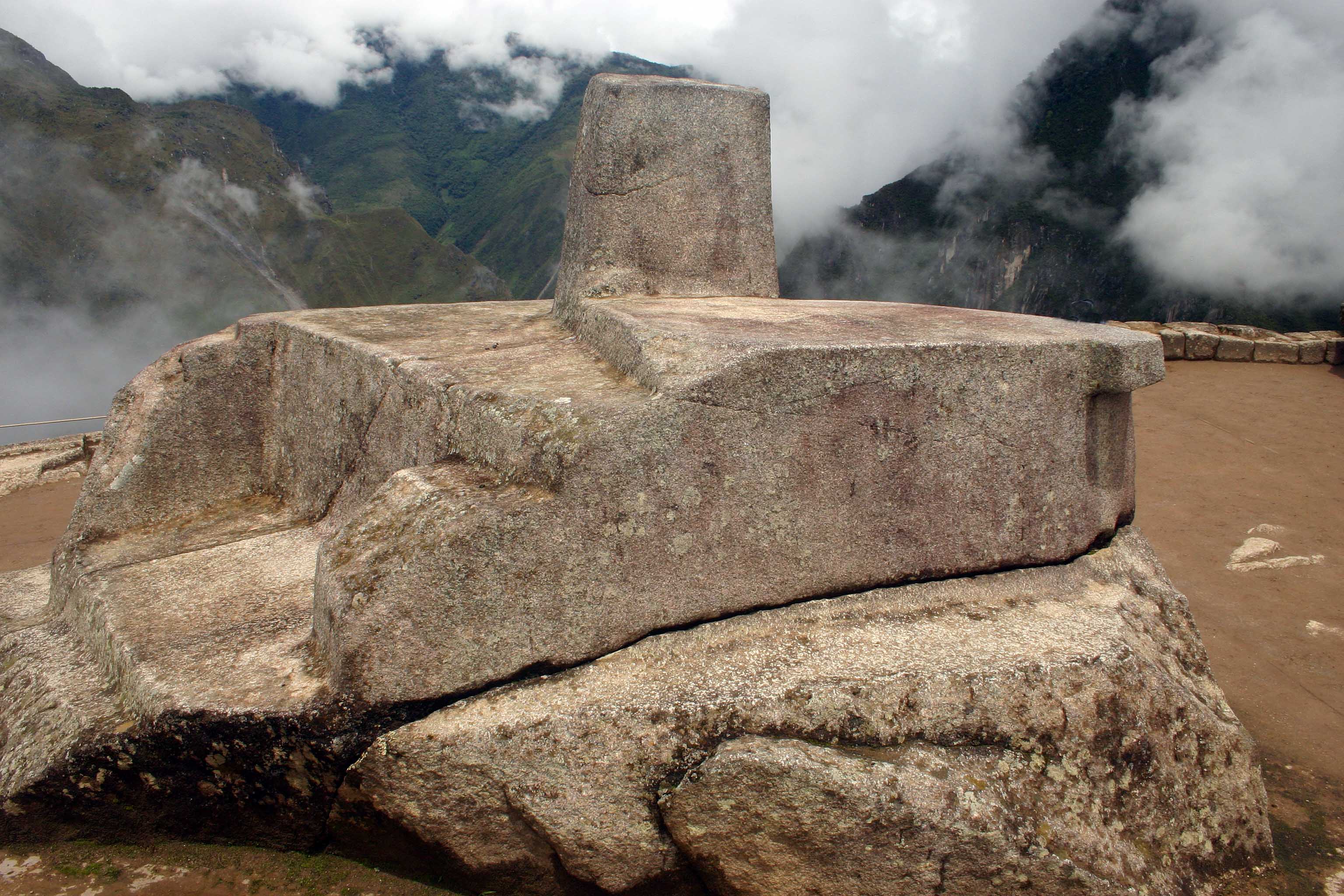
The Famous Intihuantana, or “Hitching Post of the Sun,” a sundial that also measured the equinoxes at Machu Picchu)
Peru: ‘Sensational’ Inca Find For British Team In Andes
Discovery of Sacred Ancestor Stones Has Archaeologists ‘Dancing a Jig’
Dec 5, 2010
The Guardian
A British team of archaeologists on expedition in the Peruvian Andes has hailed as “sensational” the discovery of some of the most sacred objects in the Inca civilisation – three “ancestor stones”, which were once believed to form a precious link between the heavens and the underworld.
(more…)
Yale Agrees To Return Machu Picchu Artifacts to Peru
Peru President Says Yale to Return Inca Artifacts
Nov 20, 2010
The Associated Press
LIMA, Peru — Peru’s president announced Friday that Yale University has agreed to return thousands of artifacts taken away from the Inca citadel of Machu Picchu nearly a century ago.
(more…)
Inca Burial Ground Shows Evidence of Spanish Conquest
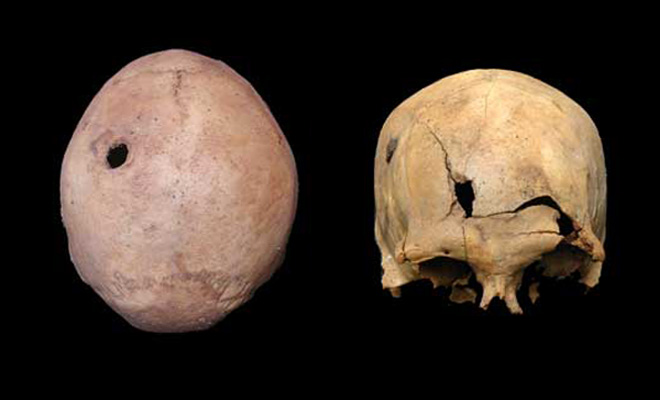
Evidence of Spanish bullet holes in 500-year-old Inca skulls, found at a burial site on the outskirts of Lima, Peru
Inca Skeletons Show Evidence of Spanish Brutality
Science News
April 2, 2010
If bones could scream, a bloodcurdling din would be reverberating through a 500-year-old cemetery in Peru. Human skeletons unearthed there have yielded the first direct evidence of Inca fatalities caused by Spanish conquerors…
(more…)
Climate Change Affecting Andes Mountain Villages in Peru
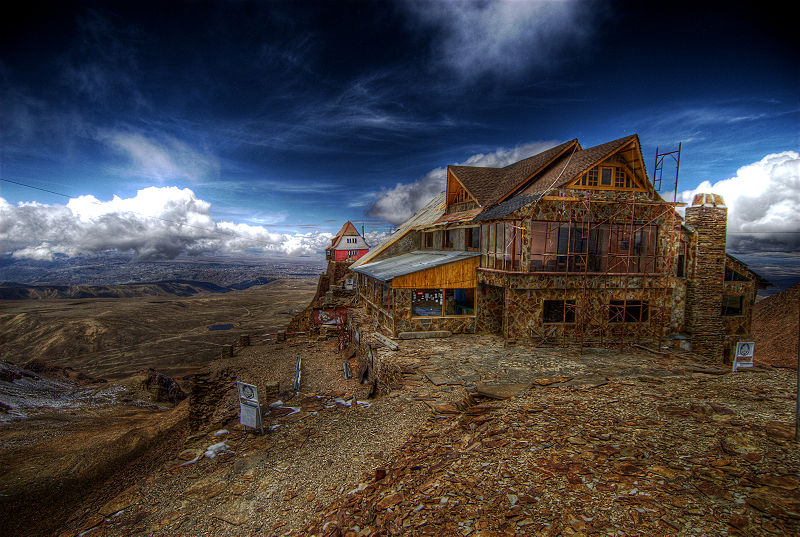
The Bolivian ski resort of Chacaltaya, stranded like a beached whale once its 18,000-year-old glacier disappeared permanently in 2009
(Note: Since the early 20th century, glaciers around the world have been retreating, presumably as a result of humans burning greater and greater quantities of oil and coal, rampant deforestation, and the raising of livestock, which create greenhouse gases that absorb more sunlight and thus heat the atmosphere. Mt Kilamanjaro’s glacier in Tanzania, for example, which has been around for 12,000 years, is expected to completely disappear by 2020… (more…)
Ancient Inca Sun Pillars Still Mark June Solstice
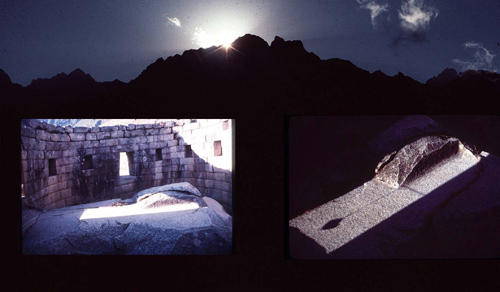
(Above: The Torreón at Machu Picchu is a tower built around a stone that still has a carved groove in it. Once a year, the groove is illuminated as the rising sun shines through one window each June solstice. The window also frames the Pleiades constellation, which was used by the Incas to decide when to plant potatoes. At its height in the early 16th century, the Incas’ 2,500-mile-long empire was littered with celestial observatories, which aided the Incas in the precise sowing and reaping of various crops–KM).
When the Sun Hits the White Granite Boulder, it’s the Solstice
By Nicholas Asheshov
Caretas
On June 21, just over a week from now, the winter solstice, easily the most important day in the ancient Andes, falls due and brilliant rays of sun will be flooding just after dawn through carefully-designed Inca windows onto sharp once-a-year marker stones…
(more…)
Ancient Painting Discovered on Giant Rock at Machu Picchu
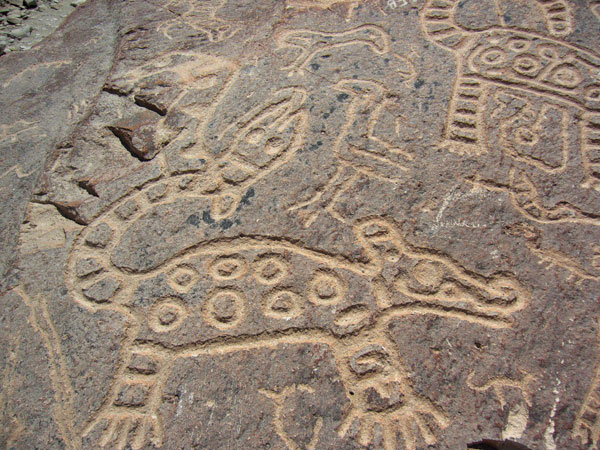
(Note: Rock art in Peru is fairly common, due to the thousands of years that humans have inhabited the area. While images of the presumed, pigment-based Machu Picchu “painting” have not yet been released, above is one of many petroglyphs that exist in the Majes Valley in Southern Peru, about 1oo miles nw of Arequipa. See also map at end of article–KM)
UCA Professor Finds Ancient Rock Painting in Peru
Arkansas Democrat-Gazette
April 17, 2009
CONWAY – A University of Central Arkansas professor said Thursday that he has discovered an ancient rock painting at an Inca burial site in the Peruvian Andes and believes the work could be anywhere from 500 to 2,000 years old.
(more…)
Debate Continues Over Whether A German Discovered Machu Picchu
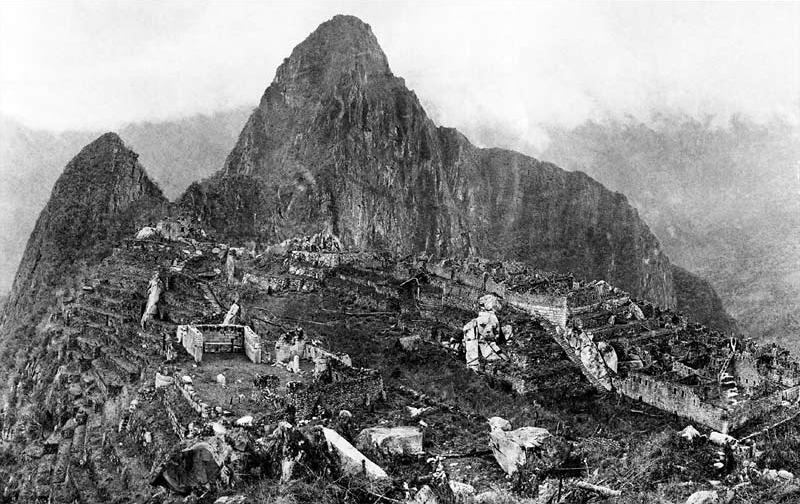
The ruins of Peru’s Machu Picchu in 1913 (photo by Hiram Bingham)
Debate Rages in Peru: Was a Lost City Ever Lost?
December 8, 2008
NYT
CUSCO, Peru — From the postcards bearing his swashbuckling, fedora-topped image to the luxury train emblazoned with his name that runs to the foot of the mountain redoubt of Machu Picchu, reminders are ubiquitous here of Hiram Bingham, the Yale explorer long credited with revealing the so-called Lost City of the Incas to the outside world almost a century ago.
But in recent months, a confluence of contrary events has threatened to upend the legacy of Mr. Bingham, the ostensible model for the fictional Indiana Jones…
(more…)
Proof that Ancient South Americans Took Hallucinogens Discovered in Mummies’ Hair
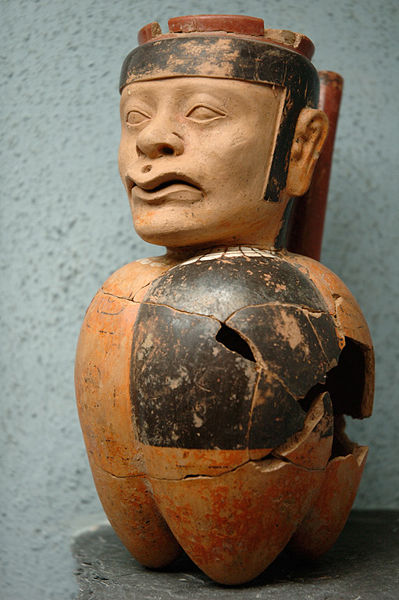
Tiwanaku ceramic vessel in museum in La Paz, Bolivia; evidence of South Americans taking hallucinogens dates back at least to the Chavin culture, in north/central Peru, which flourished from 1,000 to 200 B.C.
Andean Mummy Hairs Show Hallucinogen Use
Discovery News
Oct. 29, 2008 — Andean mummy hair has provided the first direct archaeological evidence of the consumption of hallucinogens in pre-Hispanic Andean populations, according to recent gas chromatography and mass spectrometry analysis…
(more…)
Did a German Adventurer Discover Machu Picchu Before Hiram Bingham? An Interview with Paolo Greer (Part 3)
An Interview with Paolo Greer (Part 3)
(To read Part 2, click here)
19) In what year did you find Augusto Berns’ “promotional materials” in Peru’s National Library?
PG: You are referring to the collection of Berns’ papers I mentioned in my article for the South American Explorer… (more…)
Did a German Adventurer Discover Machu Picchu Before Hiram Bingham? An Interview with Paolo Greer (Part 2)
AN INTERVIEW WITH PAOLO GREER (PART 2)
(To read Part 1, click here)
7) You recently published an article in the “South American Explorer” called “Machu Picchu before Bingham.” In the article you make a number of claims, among them that a German, Augusto R. Berns, purchased an estate called the “Cercado de San Antonio,” or “Torontoy,” in 1867 and that… (more…)







